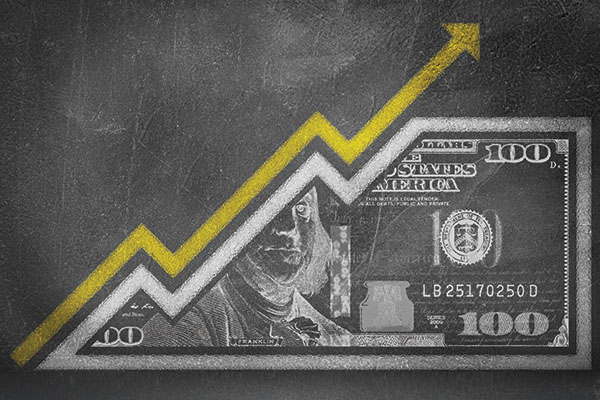LM reader survey underscores the impact of inflation on supply chain and logistics
More than 90% of survey’s respondents say they are affected by the current situation
In all supply chain and logistics circles these days, it seems that the topic at, or near, the top of the list for most industry taking points these days is inflation, and for good reason.
Those reasons are highlighted based on data recently issued by the Department of Labor’s Bureau of Labor Statistics (BLS), which indicated that, for calendar year 2021, inflation hit a 40-year high, as the Consumer Price Index was up 7% annually and up 5.5%, when excluding food and energy prices.
The impact of inflation on supply chain and logistics operations cannot be overstated and has been on full display for several months going back to the middle of 2021, or even sooner. Examples of how inflation has thwarted the sector include factors like port congestion and import container backlogs; labor availability; and fuel prices, among others.
A Logistics Management reader survey of 100 freight transportation, supply chain, and logistics stakeholders continued to reinforce how inflation continues to affect things, from both an operational and business perspective.
Putting the inflationary impact on supply chain and logistics into sharp focus, the LM survey found that 92% of respondents are being affected by the current situation.
When asked how inflation has impacted respondents’ supply chain and logistics operations, the survey highlighted things like: capacity constraints across multiple modes; rate and price increases; rising fuel prices; supply chain unreliability; surcharge and accessorial increases; raw material price increases; delayed orders and longer lead times; and a shipping container imbalance, among others.
“The costs of moving freight are increasing,” a respondent said. “Our customers with low value/low margin commodities are not very happy about this,” he said. “We expect them to start front running these costs, which will ultimately create a feedback loop that will ultimately drive up the price of transportation.”
A different respondent indicated that the most significant impact of inflation has been in the form of freight costs, which she said have already been steadily increasing due to the ongoing driver shortage. The respondent also explained how there has been a short-term impact in energy costs, specifically fuel.
Another takeaway from the LM survey showed how 82% of respondents are dealing with more supply chain challenges now than compared to a year ago. And, far from a surprise, 97% of respondents said their supply chain and logistics costs are up annually, with: 12.5% saying they are up 1%-to-10%; 29.7% saying they are up 11%-to-20%; 21.9% saying they are up 21%-to-30%; 10.9% saying they are up 31%-to-40%; 6.3% saying they are up 41%-50%; and 18.7% saying they are up more than 50%.
Doug Waggoner, Chairman and CEO of Echo Global Logistics, a non-asset-based freight brokerage company and 3PL explained that Echo’s shipper customers always ask to work with them to lower rates, with the caveat that it is all relative.
“That is a good point, in that it is inflationary, much more so than what you hear from the government or on the news,” he said. “Supply chain costs are embedded in the price of every product, so when transportation costs are going up 30% and your supply chain costs are 6% of your price of goods, they just went up a couple of percentage points. A lot of shippers are having to raise their own prices on their products to their customers, and it has a ripple effect throughout the economy.”
Spencer Shute, principal consultant, for Proxima, a strategic team of procurement specialists, observed that inflation has had a huge across-the-board impact.
“You have seen it in some major industry consolidations, like with the spin-off of UPS Freight,” he said. “LTL has been a difficult market historically to be profitable in, and that is part of the reason we have seen those types of transactions and spinoffs over the years. But, in terms of how to mitigate inflation, a lot of manufacturers are reluctant to pass on the costs to consumers, but ultimately, at some point, they have to, as their supply base is going through this inflationary period as well. It is a trickle-down effect, at which some point shippers don’t have these massive margins to take a big hit. That needs to be mitigated by shipping smarter and realigning the supply base to be more resilient so shippers can reduce the overall impact.”













